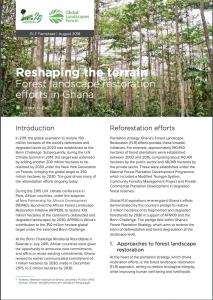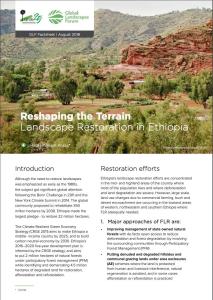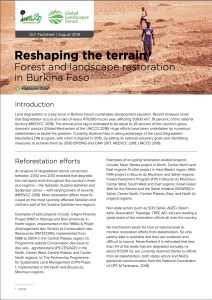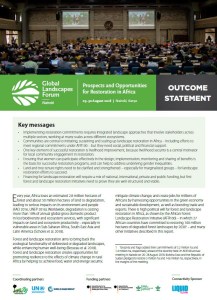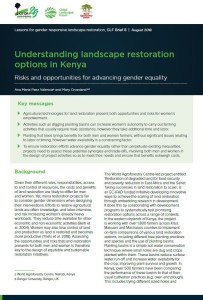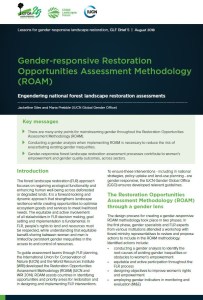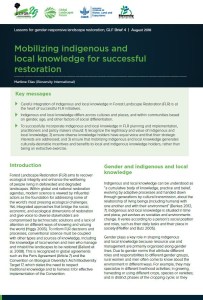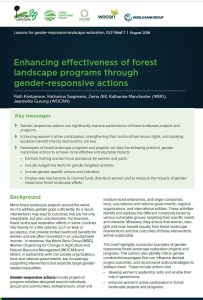Reshaping the terrain Forest and landscape restoration in Cameroon
In 2017, Cameroon committed to restore forests and degraded lands over more than 12 million hectares across all ecosystems by 2030 as part of the African Forest Landscape Restoration Initiative (AFR 100). The fact sheet elaborates on the status of the commitments made and highlights key restoration efforts and major constraints to FLR in practice.



